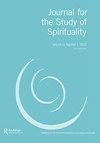Who are we, and what is the nature of reality? Insights from scientists’ spiritually transformative experiences
IF 0.8
0 RELIGION
引用次数: 2
Abstract
ABSTRACT To analyze the first-person phenomenological Spiritually Transformative Experiences (STEs) of a sample of scientists and academics, the first-person phenomenological accounts of 40 scientists’ and/or academics’ Spiritually Transformative Experiences were analyzed with respect to their perceived changes in the nature of the personal self and the nature of reality. Eighty-five percent of experiencers described a dissolution of the boundaries of their personal self; this was experienced by 62.5% as a sense of boundless oneness, with the characteristics of pure unconditional love (45%). As to the nature of reality, 60% also experienced reality as unitive, and 47.5% of the experiencers described its essence as unconditional love, bliss, and luminosity (27.5%), with some describing it as filled with energy, intelligence and beyond time. For all individuals, the experiences were considered truly real. For those who have not had similar experiences, their ontological status remains an empirical question.我们是谁,现实的本质是什么?科学家的精神变革体验
摘要为了分析一个科学家和学者样本的第一人称现象学精神转化体验,分析了40位科学家和/或学者的精神转化体验在个人自我本质和现实本质上的感知变化。85%的体验者描述了他们个人自我边界的瓦解;62.5%的人认为这是一种无限的一体感,具有纯粹无条件的爱的特征(45%)。关于现实的本质,60%的人也认为现实是统一的,47.5%的体验者将其本质描述为无条件的爱、幸福和光明(27.5%),一些人将其描述为充满能量、智慧和超越时间。对所有人来说,这些经历都被认为是真实的。对于那些没有类似经历的人来说,他们的本体论地位仍然是一个经验问题。
本文章由计算机程序翻译,如有差异,请以英文原文为准。
求助全文
约1分钟内获得全文
求助全文
来源期刊

Journal for the Study of Spirituality
RELIGION-
CiteScore
2.50
自引率
7.10%
发文量
25
期刊介绍:
Journal for the Study of Spirituality is a peer-reviewed journal which creates a unique interdisciplinary, inter-professional and cross-cultural forum where researchers, scholars and others engaged in the study and practices of spirituality can share and debate the research, knowledge, wisdom and insight associated with spirituality and contemporary spirituality studies. The British Association for the Study of Spirituality (BASS) organises a biennial international conference and welcomes enquiries about membership from those interested in the study of spirituality in the UK and worldwide. The journal is concerned with what spirituality means, and how it is expressed, in individuals’ lives and communities and in professional practice settings; and with the impact and implications of spirituality in, and on, social policy, organizational practices and personal and professional development. The journal recognises that spirituality and spiritual values can be expressed and studied in secular contexts, including in scientific and professional practice settings, as well as within faith and wisdom traditions. Thus, Journal for the Study of Spirituality particularly welcomes contributions that: identify new agendas for research into spirituality within and across subject disciplines and professions; explore different epistemological and methodological approaches to the study of spirituality; introduce comparative perspectives and insights drawn from different cultures and/or professional practice settings; aim to apply and develop sustained reflection, investigation and critique in relation to spirituality and spiritual practices; critically examine the values and presuppositions underpinning different forms of spirituality and spiritual practices; incorporate different forms of writing and expressions of spirituality.
 求助内容:
求助内容: 应助结果提醒方式:
应助结果提醒方式:


